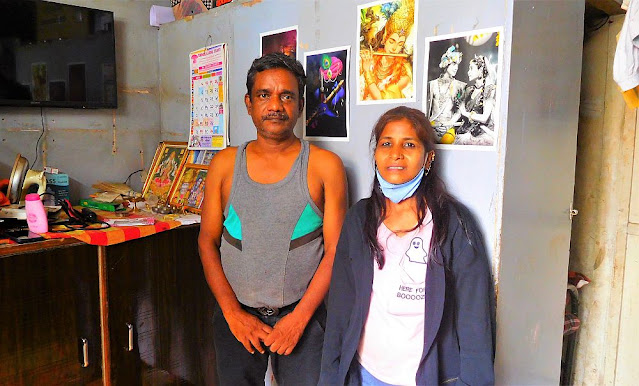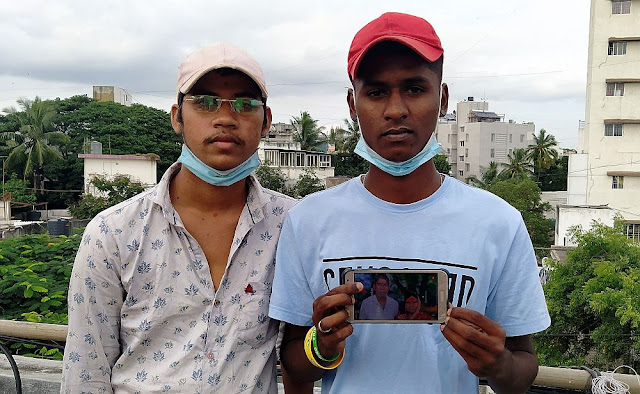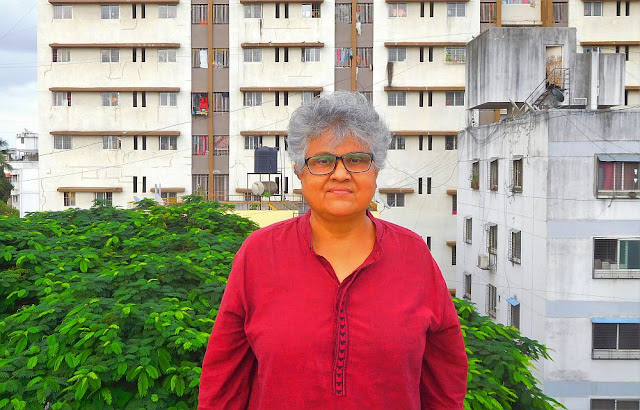Despite Insurance Yojanas, State Apathy and Private Hospital Greed Hit Maharashtra Hard
By Gajanan Khergamker
The Maharashtra Government had launched the Rajiv Gandhi Jeevandayee Arogya Yojana (RGJAY) on 2nd July 2012 in eight districts of Maharashtra (Phase 1) and, later, introduced it to remaining 28 districts of Maharashtra (Phase 2). This scheme was renamed as Mahatma Jyotirao Phule Jan Arogya Yojana (MJPJAY) from 1st April 2017 under which people in the state could avail the benefits of free and cashless health insurance. To apply for the scheme, documents such as ration card and domicile certificate were essential.
The scheme was extended to enable benefits reach out to state government, semi-government employees and white ration card holders too. For the purpose, the government signed a MoU with the General Insurance Public Sector Association (GIPSA) for treatment of COVID-19 patients at private hospitals in Pune and Mumbai. Similarly, different packages would be designed for all diseases, to standardise treatment fees at all hospitals. To prohibit hospitals from charging exorbitant fees, the Maharashtra government capped the fees of COVID 19 treatment in private hospitals. Hospitals that are not connected with the GIPSA, will also have to standardise their treatment fees.
 |
| Pune-based Kagad Kach Patra Kashtakari Panchayat representatives Shobha Bhansode and Supriya Bhadakwad (right) spoke of the horrors faced by their lot, the ragpickers |
At the Centre, the Pradhan Mantri Jan Arogya Yojana or PM-JAY as is popularly known was launched on 23 September 2018 in Ranchi, Jharkhand by Prime Minister Narendra Modi. Plugged as the largest health assurance scheme in the world, it provides a health cover of Rs five lakhs per family per year for secondary and tertiary care hospitalisation to over 10.74 crores poor and vulnerable families (approximately 50 crore beneficiaries) that form the bottom 40 per cent of the Indian population. The households included are based on the deprivation and occupational criteria of Socio-Economic Caste Census 2011 (SECC 2011) for rural and urban areas respectively. PM-JAY was earlier known as the National Health Protection Scheme (NHPS) before being rechristened.
Now, the PM-JAY scheme, on paper, covered more than 10.74 crore poor and vulnerable families across the country and listed in the SECC database as per defined criteria. While it boasted of assuring free treatment at all public and empanelled private hospitals in times of need; 1,350 medical packages covering surgery, medical and day care treatments, covered cost of medicines and diagnostics; ensured all pre-existing diseases were covered; cashless and paperless access to quality health care services and prohibited hospitals from charging any additional money from beneficiaries for treatment.
That both the State and Centre had overlooked was that to avail the treatment had to be processed, the prerequisite paperwork was simply beyond, or kept out of, reach for most. Like sex-workers in Pune's Budhwar Peth zone were hit the hardest by the state's apathy rather than the COVID-19 pandemic itself. Thousands of girls and transgenders moved out of Pune to their native places in Karnataka even in the interiors of Maharashtra only to dodge punitive State action during the lockdowns.
Vinita (name changed) stayed back in Pune's Budhwar Peth to help her lot through 'Saheli' and beat the system that had literally 'hounded her'. "After being tested for the COVID-19 virus with RT-PCR tests, the civic authorities would simply classify the girls as either being 'positive' or 'negative' without producing even a single physical test result," she recalls. "The process is created to strike fear in the hearts of the sex-workers who would often pay up only to be let off. Or else, the authorities would force the girls into undertaking institutional treatment. And, all of this without producing a test result," says Vinita. "We were charged for tests as high as Rs 10,000 and 'COVID-19 treatment' all at the whim of private centres," she says.
For sex-workers like Vinita who earned Rs 300 for a 15-minute sexual interlude, the COVID pandemic hit 'business' hard and reduced their paltry rates to as low as Rs 150 as Budhwar Peth's surge of customers reduced to a trickle over the years, the lockdown dealt a body blow.
Saheli HIV/AIDS Karyakarta Sangh Executive Director Tejaswi Sevekari offers, "Forget Insurance, it had turned into an opportunity for the authorities during the lockdown. While there were hardly any cases of COVID-19 in the zone, the local police had barricaded the entire area of Budhwar Peth affecting the lives of sex-workers who had no source of income. With the stigma attached to the profession, things only became worse for sex-workers attempting to get themselves tested or avail COVID-19 treatment here." All of this while the sex-workers qualified for the PM-JAY scheme by sheer dint of the nature of their work.
Completely oblivious of the schemes available, the sex-workers in Pune, in the eye of the storm of the second wave, simply couldn’t afford the costs incurred during treatment. On paper they could avail free treatment but, in reality, they were provided no relief. "Given a choice, most of the sex-workers would opt for private facilities who would, in turn, fleece them by charging them arbitrarily rather than avail a government-provided treatment. That it would be for free and fast was only on paper. There were practical hurdles in their way. So, among the 3,000-odd sex-workers in the zone, most of them lost all their savings and incurred a lot of debt during the COVID pandemic. There were also those from other states like Karnataka who got admitted in a government facility but simply couldn’t avail any benefits because they didn’t have any papers or documents needed to do the same," says Ms Sevekari.
As of March 31, 2021, a total of 28,12,980 Covid infections were recorded in the Maharashtra, with 54,649 Covid deaths. Between 1 April 2020 and 31 March 2021, 5,07,188 Covid patients have benefitted from the Mahatma Jyotiba Phule Jan Arogya Yojana in Maharashtra. Pune district, which had the highest number of infections in the state, saw 34,045 claims settled till then. On the other hand, Mumbai, which had 4,23,419 infections and 11,708 deaths on 1 April 2021, saw 29,664 claims settled. The highest number of claims settled was in Ahmednagar, at 34,867 where 95,000 infections and 1,221 deaths were recorded. A total of 34,574 in claims were settled in Kolhapur.
 |
| Budhwar Peth-based retired sex-worker Chhaya Jadhav had to depend on transgender 'Guru' Sheela Shaikh for support and care when she contracted COVID-19 |
"While the government declared that holders of all types of ration cards would be eligible under the scheme, at grassroot, families had to shell out lakhs for COVID treatment. Why, hospitals were known to force citizens to pay up hefty bills and simply refused to implement the scheme leading to state government's action across Maharashtra's hospitals," says Mumbai-based Life Insurance Corporation's Nilesh Patil. "Little wonder then that, despite the insurance policies in place, Maharashtra government had to literally take over hospitals during this period even ensure checks in prices and rates for procedures to provide medical relief," he says.
In Pune's Budhwar Peth lies a ramshackled building in Dhamdhere Galli where, on the second floor, 42-year-old Ujwala Patil nurses her severely sick diabetic and hypertensive husband Ravi Patil who had been diagnosed with COVID-19 in July 2020. The family couldn't get a bed for him in Sassoon General Hospital where they were told to "sit outside and wait," till Ujwala moved from pillar to post trying to find her husband a bed. On a social worker's kind intervention, she got one at a COVID-care centre in Pimpri where he stayed for six days after availing treatment by way of a saline drip for three days at a nearby hospital during the day.
 |
| Jobless during the lockdown, daughter of a sex-worker Ujwala Patil and COVID-afflicted husband Ravi Patil survived on loaned money and ration doles |
"Nobody was even willing to take him to the hospital. The risks were high and even ambulance drivers refused to transport him for fear of contracting COVID-19," recalls Ujwala. Ravi worked in a catering business before the lockdown and Ujwala would sell clothes at a pavement stall but all of that is now in the past. Daughter to a sex-worker Gangubai Netre, Ujwala found absolutely no help anywhere in sight for herself, despite 'qualifying' for 'relief' on paper. "Just the saline would cost me Rs 1,500 everyday, the antibody test costed Rs 3,500 and I had to incur a minimum cost of Rs 2,500 to Rs 3,000 as daily expenditure. Medicines that I’d have to get from outside would cost an extra Rs 1,000 at least daily,” says Ujwala. “And, then we had to pay for all the transportation daily as well as we moved around by auto."
Ravi has yet not recovered fully and stopped work. He needs to get an MRI done to investigate his state but has no funds at all. Meanwhile, Gangubai Netre who had come from Karnataka to do sex-work at Budhwar Peth to fend for her family would have issues with availing the state's domicile certificate owing to her non-permanent residence in Pune. "And now, over the last three years, she is swiftly growing senile," says Ujwala.
Among the ones the schemes aim to protect and help yet were hit the worst owing to the state's apathy were ragpickers. In Mumbai and Pune, they faced the brunt of social disdain and worked as essential COVID warriors, fought brave battles, even lost their lives yet remained unsung.
 |
| Pune ragpicker Hirabai Mhaske (right) who lost her brother Arjun Sarvagod to COVID-19 is yet awaiting benefits of health insurance while Arjun's bereaved wife Surekha Sarvagod is swiftly losing hope |
Pune Shivajinagar sibling ragpickers Yashoda Garad and Suresh Shikre faced the worst time of their lives in March this year when not just did their entire families contract COVID-19, they even lost their ragpicker mother 58-year-old Shantabai Shikre. “My mother was working, collecting waste from door to door, till the day she was diagnosed with COVID-19,” recalls a distraught Yashoda who also developed COVID-19 symptoms in March 2021.
When her husband Rajendra Garad, brother and son went looking for a hospital bed in government facilities and couldn’t get one, they got her admitted to a private facility despite the charges being “very high” but only for a day. "They also got me to do a COVID-19 test and charged Rs 5,000 for it." She was finally admitted to a private hospital with a ventilator and kept for a week. "The charges for a hospital bed, tests, X-rays, medicines during the time amounted to more than one lakh rupees," she says.
When Yashoda was discharged, she returned to her mother who had, by then, fallen sick. She was admitted in the same private facility as Yashoda’s for eight days. The treatment cost the family Rs 90,000. “We simply didn’t have any money left so requested the hospital staff to discharge her. They told us to pay the bill and take her away. Next morning, on 12 April 2021, we received a call from the hospital that she had passed away. We haven’t received any compensation or insurance money so far,” says Yashoda. The family has incurred a debt of over Rs two lakh and all of this despite having 'qualified' for the yojanas, so to speak.
 |
| Brothers Ajay and Vishal Gaikwad (right) recalled how their ragpicker grandmother Chandrabhaga Gaikwad died a lonely, painful death. Her memory is restricted to an image on a mobile |
Pune's Kagad Kach Patra Kashtakari Panchayat co-founder Poornima Chikarmane says, “The ragpickers are essential workers but could not avail the benefits of the schemes at the time as they were applicable only in certain hospitals. Only later, the Jumbo COVID facilities came up to reach the aid. Also, owing to a lot of panic at the time, private entities made a lot of money especially when there was a shortage of beds.”
She adds, “Even in government hospitals, at that time, several medicines such as Remdesivir, were not included in these schemes. The patients were left with little option but to pay a fortune for them. A huge black market was created.”
 |
| Kagad Kach Patra Kashtakari Panchayat Co-Founder Poornima Chikarmane says private hospitals took full advantage of the panic and confusion over insurance for COVID |
“In COVID Centres, those who were admitted and got the tests done were not given the reports in hand, they would just be told if they’re COVID positive or negative. Even the death certificate would not reveal COVID-19 as the 'cause of death,' leaving little to show by way of proof for redress. Their kin unable to show a correlation of COVID-19 with death could not avail any benefits,” added Ms Chikarmane.
"COVID Warriors have been assured insurance on death and several applications are pending with the Pune Municipal Corporation, but nothing has come out of it so far,” she maintains.






























